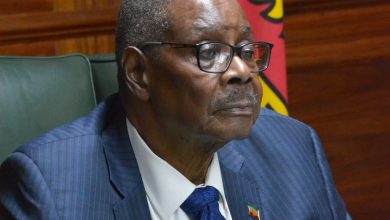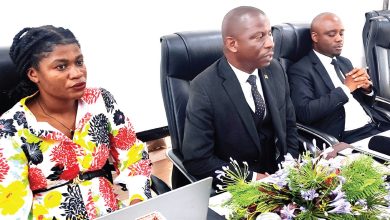EDF charts new path for infrastructure
Export Development Fund (EDF), a development financing institution that promotes export growth, has called for strengthening of Malawi’s ability to structure bankable infrastructure projects.
Speaking in Lilongwe yesterday during the opening of the three-day meeting hosted in partnership with Southern African Development Community (Sadc) Development Finance Resource Centre, EDF board chairperson Ted Nakhumwa called for stronger institutional cooperation and improved project preparation to unlock the country’s infrastructure financing bottlenecks.

He said infrastructure remains the foundation of economic transformation, arguing that the Malawi cannot expand its industrial base or achieve meaningful regional integration without modern, well-financed systems in transport, energy, information and communication technology and water.
He said public private partnerships (PPPs) offer a practical route to fast-tracking project delivery while crowding in private investment.
Said Nakhumwa: “Infrastructure is not optional, it is essential. Financing infrastructure is not just a government responsibility. It is a shared mandate that requires innovative solutions and strong partnerships.”
He said Malawi’s development ambitions rely on the country’s ability to finance and deliver high-impact infrastructure.
“Malawi’s future growth depends on our ability to finance and deliver the right infrastructure.
“Strong partnerships through PPPs and innovative financing are key to unlocking this potential,” he said.
EDF managing director Frederick Chanza said global volatility and shrinking donor support have made development finance institutions more crucial than ever.
He argued that Malawi should improve its ability to structure and package projects that can attract long-term private capital.
“Infrastructure financing is not just about mobilising money, but also about creating confidence and managing risk,” he said.
Chanza said Malawi’s infrastructure goals require a more skilled pipeline of professionals capable of developing viable and well-governed projects.
He said Malawi should build the technical skills and institutional partnerships needed to deliver projects that can attract private capital and withstand financial scrutiny.
The meeting brought together participants from commercial banks, development finance institutions, public and private investors for in-depth sessions on PPP frameworks, project structuring, risk allocation, procurement, contract management and financial modelling.
Sadc Development Finance Resource Centre chief executive officer Zweli Sapula said PPP models are already proven across the region, citing South Africa’s independent power producer programme, regional transmission initiatives and toll-road concessions as examples of frameworks that have successfully brought in private capital.
He said the region’s high cost of financing stems from high perceived risk, a challenge that stronger PPP structures can address.
“Interest rates are high because investors see the region as risky. What we need are structures that reduce that risk. Strong PPP frameworks can do exactly that,” said Sapula.
The meeting is being facilitated by infrastructure and project finance specialist Nathaniel Munetsi, KPMG-certified PPP professional with experience in structuring complex deals across Southern Africa.
The programme blends case studies, real-world examples and scenario-based learning to help institutions identify bankable opportunities and strengthen governance systems.
For EDF, the initiative is part of a broader strategy to position Malawi as a competitive player within the African Continental Free Trade Area, a market of 1.3 billion people with a gross domestic product of $3.4 trillion, where reduced trade costs and modern infrastructure will be critical.
The meeting is expected to position the country to attract long-term capital from banks, pension funds and development finance institutions.





